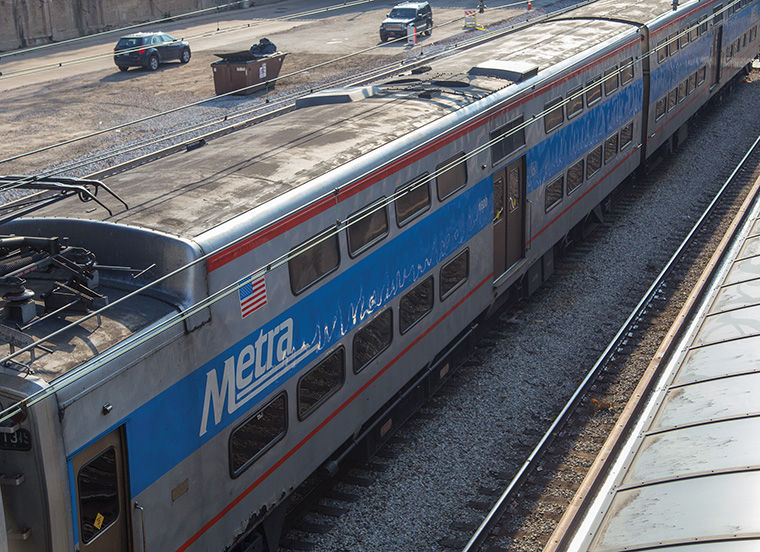Metra to increase fare in 2015
Suburban train company Metra will increase fares in an effort to combat the rising costs of maintenance, leaving many Chicagoland residents displeased with the fare change.
November 24, 2014
Metra’s board of directors approved a 2015 budget on Nov. 14 to improve and modernize its railroad service, which will include a 10.8 percent increase in all fares beginning Feb. 1, 2015.
“We are continuously looking for ways to run this agency as effectively and efficiently as possible,” said Metra Board Chairman Martin J. Oberman in a Nov. 14 press statement. “The simple fact is that cost containment can only go so far. Through this budget, Metra is demonstrating that it is spending the dollars necessary to maintain service and taking the steps necessary to invest in its future.”
Michael Gillis, a spokesman for Metra, said although there will be a fare increase, prices will vary depending on whether a passenger buys a one-way ticket, 10-ride ticket or monthly pass.
Gillis said a variety of factors led to the increase, including the costs of operations and the maintenance of cars and locomotives, which cost more to maintain as they age. The cost of maintaining the new federally-mandated safety system known as Positive Train Control also contributed to the fare increase, Gillis said.
Metra is trying to pay for the cost of its operations by tackling large capital costs it has faced for several years, Gillis said. Metra will be issuing bonds and borrowing funds in the near future from the state and federal governments to help fund a plan to buy new cars and locomotives for the railroad system, he said.
“Our capital needs far exceed the available resources we have to meet them,” Gillis said. “So the board decided they should face the problem by issuing bonds or borrowing money for the first time to start addressing this need with the hope that [the] state and federal [government] will help out.”
Ivette Carrillo, a 21-year-old Lansing, Illinois, resident and senior creative writing major, commutes daily to school and work by driving and taking the Metra and said the increase is going to cause her monthly travel expenses of $130-150 to increase.
Carrillo said she considered finding a job closer to her home, but the upcoming fare increase is motivating her to do so more quickly. She said she is debating whether she should drive to work and pay for parking instead of riding the Metra.
“I have to take the Metra regardless,” Carrillo said. “Right now, I’m trying to get a job closer to my house, so I won’t have to take the Metra all the time.”
Gillis said the budget goes toward infrastructure by covering the day-to-day cost of running the railroad and the budget for capital needs.
Christina Williams, a 27-year-old Blue Island, Illinois, resident, commutes twice daily by Metra for work and school. Williams said she pays $8.50 each day and thinks Metra should offer a discount on the monthly pass that extends to college students and the working class because the student Metra passes are only for high school students.
“It’s ridiculous, especially since [the] CTA doesn’t charge as much as the Metra right now,” Williams said. “For [prices] to be going up is absurd. There is no benefit in getting a monthly pass because there is no discount. You pay the same [for the monthly pass. It is] only for convenience.”
Williams said Metra might see a significant drop in ridership with the increased rates. She said more people might drive and take the CTA to work and to school instead of taking the Metra.
“The state [should] step in and offer some type of initiative, because [the] CTA runs more rapidly [and] it’s cheaper,” Williams said.








